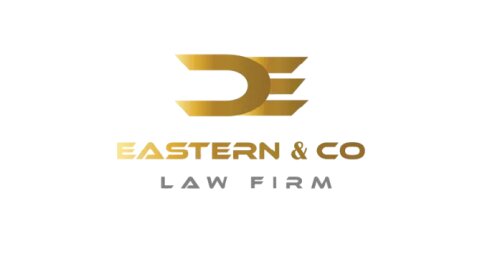Best Outsourcing Lawyers in Dokki
Share your needs with us, get contacted by law firms.
Free. Takes 2 min.
List of the best lawyers in Dokki, Egypt
About Outsourcing Law in Dokki, Egypt
Outsourcing in Dokki, Egypt generally involves contracting third party service providers to perform tasks that would otherwise be handled in-house. This can include IT development, customer support, back-office administration, and human resources functions. The legal framework guiding these arrangements sits primarily in general Egyptian contract and labour law, with specific considerations for data protection when personal data is involved. In Dokki, most outsourcing disputes are resolved under national law in Cairo or Giza courts, depending on the contract’s chosen governing law and venue clauses.
Egyptian employment and subcontracting practices are governed by core statutory regimes, including the Labour Law and Civil Code, plus data protection rules when personal information is processed by a supplier. Source: Egyptian Ministry of Manpower and Migration
Why You May Need a Lawyer
Engaging a lawyer in Dokki for outsourcing matters helps prevent disputes and ensures compliance with local requirements. Here are concrete, real-world scenarios where legal counsel is essential.
- Drafting an end-to-end outsourcing agreement for a Dokki start-up - You hire a Cairo-based software firm to develop and maintain an application. A lawyer drafts service levels, response times, acceptance criteria, data handling, IP ownership, and change control to avoid later misinterpretations.
- Structuring subcontracting while protecting workers’ rights - Your company outsources payroll and HR tasks to a subcontractor. A solicitor ensures the subcontracting structure complies with Labour Law No 12 of 2003, including worker protections and proper notice periods.
- Managing cross-border data processing - A vendor processes customer data from Egypt for a foreign client. A legal counsel negotiates a data processing agreement (DPA) aligned with Personal Data Protection Law No 151 of 2020 and cross-border transfer rules.
- Addressing non-performance or service level breaches - A Dokki call center provider fails to meet agreed service levels. An attorney helps craft remedies, termination rights, and any transition plans that minimize business disruption.
- Handling employee transitions during outsourcing - When some staff transfer to the outsourcing provider, a lawyer ensures compliance with local labour safeguards, consent requirements, and potential severance implications.
- Negotiating IP rights and confidentiality in outsourcing - You need robust non-disclosure agreements and clear ownership of developed code or data provided to the vendor, with clear post-engagement obligations.
Local Laws Overview
Two to three key legal regimes shape outsourcing in Dokki. The following names are essential to understand when negotiating, drafting, or enforcing outsourcing agreements in Egypt.
Labour Law No. 12 of 2003 (as amended)
This law governs employment contracts, worker rights, and employer obligations. It is central to any outsourcing that involves transferring or assigning employees, or hiring subcontractors who perform work normally done by your staff. The statute sets out rules for contract formation, termination, and protections for workers who may be affected by outsourcing arrangements. Amendments over the years have sought to clarify subcontracting relationships and worker protections in various sectors.
Personal Data Protection Law No. 151 of 2020
Law 151/2020 regulates the processing of personal data, including outsourcing arrangements where a supplier handles client or employee data. It establishes data controller and data processor responsibilities, consent requirements, data subject rights, security measures, and restrictions on cross-border data transfers. Enforcement has progressed through 2022 and 2023 with regulatory guidance from official bodies.
Civil Code No. 131 of 1948
The Civil Code provides general contract rules that apply to outsourcing agreements, including formation, interpretation, performance, and remedies for breach. It helps determine the validity of terms such as service scope, liability limits, and resolution procedures when disputes arise between contracting parties in Dokki and beyond.
In Dokki, these laws interact with local court practices in Cairo and Giza. For cross-border outsourcing, the Civil Code and PDPL together govern contract validity, data handling, and enforceability of choice of law and venue clauses.
Egyptian data protection law imposes specific duties on processors and controllers and requires formal agreements for outsourced processing. Source: International Labour Organization (ILO) and Egyptian legislation portals
Frequently Asked Questions
What is outsourcing in the Egyptian legal context?
Outsourcing is contracting third-party services to perform tasks that would otherwise be done in-house. In Dokki, this often involves IT, back-office, or HR functions.
How do I know if my outsourcing contract is enforceable in Egypt?
Enforceability depends on the contract complying with the Civil Code and Labour Law, plus meeting any PDPL data protection requirements when personal data is processed.
What is a data processing agreement in outsourcing?
A DPA defines roles, responsibilities, security measures, and data handling procedures between the data controller and data processor during the outsourcing engagement.
Do I need to register outsourcing arrangements with a government body?
There is no universal registration requirement for outsourcing, but certain elements such as labor compliance and data protection may require regulatory adherence and documentation.
How much can I expect to spend on a lawyer for outsourcing matters in Dokki?
Costs vary by matter complexity and attorney experience. Initial consultations often range from a few hundred to a few thousand Egyptian pounds, with drafting and review work priced per hour or by project.
What is the timeline to finalize an outsourcing agreement?
Initial negotiations may take 2-6 weeks, with due diligence and contract drafting extending to 4-8 weeks for complex, cross-border arrangements.
Do I need a local lawyer in Dokki or can I hire someone from Cairo?
Local presence helps with court filings and local enforcement. A qualified advocate in Cairo or Dokki who understands local practice is advisable.
Is data protection crucial in outsourcing deals?
Yes. PDPL requirements apply whenever personal data is processed by the vendor, including contract clauses on security, data subject rights, and cross-border transfers.
What should I include in an outsourcing service level agreement (SLA)?
Include service scope, performance metrics, response and resolution times, penalties, escalation paths, and termination rights for breach of SLAs.
How do I handle employee transfers during outsourcing in Egypt?
Assess legal obligations under Labour Law, ensure proper notice and consents, and plan for fair severance or transfer terms if employees move to the vendor.
What are the main differences between a vendor and an agency in outsourcing?
A vendor typically provides a service or product to your business, while an agency may place or manage personnel or perform specific tasks under subcontracting rules.
Can I choose governing law and venue for disputes in a Dokki outsourcing contract?
Yes, you may specify governing law and venue, but ensure it aligns with mandatory Egyptian provisions and practical enforcement in local courts.
Additional Resources
- Ministry of Manpower and Migration - Official government guidance on labour law, subcontracting, and worker rights. https://www.manpower.gov.eg
- Legislation Portal of Egypt - Official repository for Egyptian laws, including Labour Law and Civil Code texts. https://www.legislation.gov.eg
- International Labour Organization - Egypt - Independent analysis and guidance on labour standards, subcontracting practices, and worker protections in Egypt. https://www.ilo.org/africa/countries-covered/egypt/lang--en/index.htm
Next Steps
- Define your outsourcing needs clearly - List the tasks, data involved, and expected outcomes. Timeline: 1-2 days.
- Gather background documents - Collect current contracts, data flows, IP lists, and employee records relevant to the outsourcing engagement. Timeline: 3-5 days.
- Consult a Dokki-based advocate with outsourcing experience - Seek a lawyer who understands Labour Law, Civil Code, and PDPL. Schedule initial meeting within 1-2 weeks.
- Obtain a written engagement plan and budget - Request a scoped proposal for contract drafting, review, and any negotiations. Timeline: 1 week.
- Draft or review the outsourcing agreement - Include SLAs, IP rights, data protection clauses, subcontracting rules, and termination provisions. Timeline: 2-4 weeks.
- Negotiate key terms and settle redlines - Focus on data security, remedies for breach, and transition plans. Timeline: 1-2 weeks.
- Finalize and execute the contract - Ensure all parties sign and all regulatory requirements are satisfied. Timeline: 1 week after negotiations.
Lawzana helps you find the best lawyers and law firms in Dokki through a curated and pre-screened list of qualified legal professionals. Our platform offers rankings and detailed profiles of attorneys and law firms, allowing you to compare based on practice areas, including Outsourcing, experience, and client feedback.
Each profile includes a description of the firm's areas of practice, client reviews, team members and partners, year of establishment, spoken languages, office locations, contact information, social media presence, and any published articles or resources. Most firms on our platform speak English and are experienced in both local and international legal matters.
Get a quote from top-rated law firms in Dokki, Egypt — quickly, securely, and without unnecessary hassle.
Disclaimer:
The information provided on this page is for general informational purposes only and does not constitute legal advice. While we strive to ensure the accuracy and relevance of the content, legal information may change over time, and interpretations of the law can vary. You should always consult with a qualified legal professional for advice specific to your situation.
We disclaim all liability for actions taken or not taken based on the content of this page. If you believe any information is incorrect or outdated, please contact us, and we will review and update it where appropriate.









